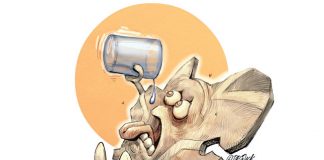
South African agribusinesses are positioned to benefit from high agricultural commodity and farm gate prices. They are also in an excellent position to do business in Southern Africa. However, the need for an enabling environment to realise investment will probably be the most testing issue in 2012.
The cauldron brought about by the legacy of the past almost reached boiling point in 2011. Finding the middle ground on what actions are feasible and affordable, versus the cost of an untransformed economy plagued with high unemployment and unequal and distorted income distribution, will be a major challenge. This is expecially so for the agriculture and agribusiness sector in the rural areas of the country.
Land reform remains a politically sensitive subject that creates a lot of uncertainty and lack of investor confidence. While orderly and market-based land reform is a necessity, it has been politically and administratively abused.
Government’s lack of management and delivery, related fraud and corruption, and the more recent funding constraints, have caused a lot of frustration, especially among beneficiaries whose expectations were often unrealistically high. Land reform should have provided social stability and more equal income distribution.
However, it has resulted in a social, economic and political burden, as the cost is now higher than expected. Confidence in the delivery process is also low and politicians have used the process to their benefit.
Industry will rely heavily on constructive outcomes from the current Green Paper on Land Reform. Many eyes will be on minister of Rural Development and Land Reform, Gugile Nkwinti for effective leadership on this issue in 2012.
The cost of doing business in South Africa is currently the most significant challenge and reflects directly on the bottom line of businesses and at national level. Administered prices and the cost of using national infrastructure, such as toll fees and port tariffs, are proportionally too high and the longer-term effect is destructive.
The cost of labour is increasingly obstructing business growth. Higher wages are not necessarily the concern, but wages completely outweigh productivity levels.
Employment
Solutions to enhance sustainable employment are essential in 2012, not only for employment statistics, but for economic sustainability in rural areas.
Sufficient and sustainable employment is crucial to the agro-food industry. Unemployment is top of the agenda for politicians in 2012, and so it should be for any business decision-maker. Employment may have increased in the latter part of 2011, but the unemployment rate is expected to remain at elevated levels for some time still.
Government can no longer carry the social burden by itself. Business in general, is doing a lot in this regard, but 2012 should be the year of collaboration. Partnerships between government and the private sector towards employment generation, transformation and development are essential in achieving sustainable employment and income generation.
Sustainability
Following the so-called awareness of sustainability at COP 17 in Durban at the end of 2011, business as usual in this regard is not an option in 2012. Agribusiness and agricultural producers are obliged to achieve more with less, focusing on improved technology and cultivars, implementing more efficiency-oriented production techniques, efficient water use and reduced energy consumption.
Decreasing agriculture’s carbon footprint and reducing emissions will also top the agenda, with consideration of ‘buying local’, ‘buy in-season’, ‘less transport’ and ‘self-sufficiency’. Agribusinesses are well positioned to lead developments in renewable energy. Sustainability strategies will become inevitable as consumers demand this and as resources become scarcer and more expensive.
The inability to pro-actively manage biosecurity issues in 2011 has had a devastating effect on certain industries in the agricultural sector. Government’s inability to effectively manage the avian flu outbreak, Rift Valley fever and foot-and-mouth disease is not acceptable.
Neither is the lack of commitment by leaders within government. Existing and new biosecurity threats will continue to emerge. Therefore industry and government have to address the biosecurity issue as a priority.
Markets
The international economy remains fragile, as the EU sovereign debt crisis remains unresolved and prospects still appear gloomy and risky. As the EU is traditionally SA’s most important agricultural export market, the agribusiness sector is specifically concerned about the demand for its agricultural products.
Buying power is relatively low, especially for high value goods and world agricultural trade is expected to be low in 2012. Emerging markets, such as developing Asia and sub-Saharan Africa, will predominantly drive world economic recovery and growth in 2012.
As the world population and the need to produce food increases, the under-utilised resources in Africa remain a very good opportunity.
Agribusinesses in SA are well positioned to enter other African countries to provide inputs, services and markets to the emerging agricultural sector. In 2012 and thereafter, these initiatives will draw much attention and expand robustly.
Local economy
South Africa is not only exposed to the same economic risks faced by other countries, but also has to overcome the burden of its past by addressing the social imbalances which are attracting attention from policy and business decision-makers, while at the same time attempting to achieve economic growth.
The South African economy is growing slower than previously projected. GDP growth dropped from almost 5% in early 2011 to a mere 1,3% and 1,4% in the second and third quarters respectively. These rates remain much lower than what is required to enable the structural changes necessary to address social imbalances and especially unemployment.
Growth forecasts were adjusted downwards by most economists, business decision-makers and government. It is a major concern that the primary sector of the economy, including agriculture, has contracted since the beginning of 2011. The contraction in agriculture is expected to ease somewhat in 2012, as higher agricultural product prices could bring some relief.
Agricultural exporters who have adapted over the past two years to the relatively stronger rand can likely look forward to a more stable exchange rate in 2012. Agribusinesses should be prepared for an increase in interest rates later in 2012, if inflation does not fall back within the target range.
Contact Lindie Stroebel, ABC manager of economic intelligence at [email protected].
The views expressed in our weekly opinion piece do not necessarily reflect those of Farmer’s Weekly. •FW













